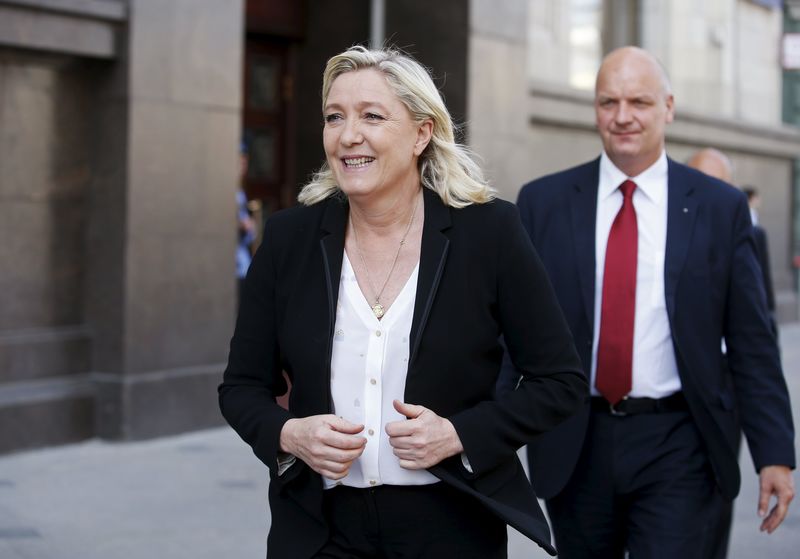By Ingrid Melander
PARIS (Reuters) - Nicolas Sarkozy vs Francois Hollande: the re-match. With both having tightened their grips on their parties in recent days, a 2017 repeat of France's 2012 presidential election now looks like the most likely scenario.
The snag is that three quarters of the French do not want either the current president or his predecessor to run again, polls show - a fact that could boost the protest vote for the far-right National Front while making for a low turnout that would give any mainstream victor a weak mandate for reforms.
"In Britain, party leaders resigned and quit politics after their defeat, even though they're only in their 40s," Gael Sliman of pollster Odoxa said, referring to the Labour and Liberal Democrat leaders who stepped down after being beaten by incumbent David Cameron in last month's election.
"Here the system provides for little renewal and promotes the old or very old ... and failure. That is not inspiring (for voters)," he said. Both Sarkozy and Hollande are 60.
A divisive figure who briefly retired after his 2012 defeat to Hollande, Sarkozy returned to the helm of the conservative UMP party late last year and has sought to sideline his main rival for its ticket, former prime minister Alain Juppe, who will be 71 years old by the time of the election.
Sarkozy consolidated that comeback at a weekend convention, with grassroots members chanting "Nicolas! Nicolas!" after he won more than 80 percent approval for his plan to re-name the party "The Republicans". Two months earlier, he steered the party to victory in mid-term local elections.
A few days earlier, Hollande - the most unpopular French president on record and challenged within his Socialist party just a few months ago - saw party members overwhelmingly back his policies in a vote before a June 5-7 party congress.
Even critics on the left of the party acknowledged that a rebellion against his increasingly centrist line had run out of steam, combined with signs that the stagnant economy has started to turn around.
"It's time to move on ... grassroots supporters have made clear they don't support the backbenchers," said Karine Berger, a Socialist lawmaker associated with the party's left wing.
She and others in the party now say there is little point in holding a primary for the 2017 ticket - giving Hollande as the incumbent right of first refusal if he chooses to stand.
JUDICIAL SHADOW
Granted, a lot could happen in the next two years.
Sarkozy faces the challenge of wooing centrist voters, who prefer Juppe, in a 2016 primary.
"Nicolas Sarkozy has the party - I have the public opinion for me," Juppe told French media on Sunday.
Ultimately, there are more conservatives than centrist voters so they are unlikely to sway the result of the 2016 primary. But Sarkozy's candidacy also depends on the outcome of a string of judicial investigations that target him or former aides. He denies wrongdoing and vows to fight what he says are politically motivated attempts to undercut him.
"It's not all done and dusted, far from it," Ifop pollsters' Jerome Fourquet said. "But Sarkozy is gradually building up his grip on his political family ... It's taking shape."
If both Hollande and Sarkozy continue to fail to attract much enthusiasm, that could boost the chances of others within the party or that of other, more extreme parties.
One person in particular could benefit from voter fatigue with the lack of fresh faces: far-right FN leader Marine Le Pen.
Le Pen scored a surprise 18 percent in the first round in 2012 and opinion polls forecast she will make it to the second round this time, though she is unlikely to win.
If the public mood doesn't change, a Sarkozy-Hollande re-match is likely to see lower voter turnout than usual for a presidential election, said Odoxa's Sliman.

"And in that case the winner, whoever he is, would start out with complete lack of popular trust."